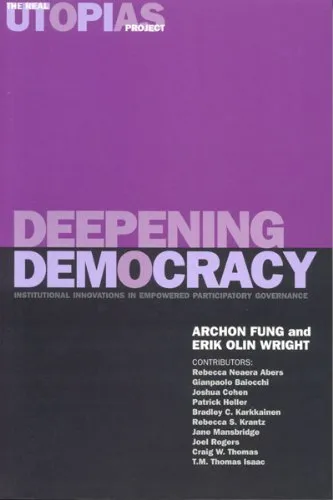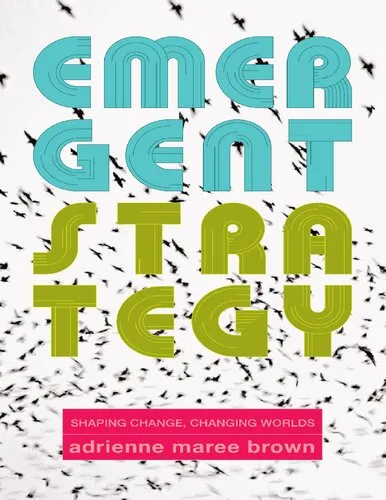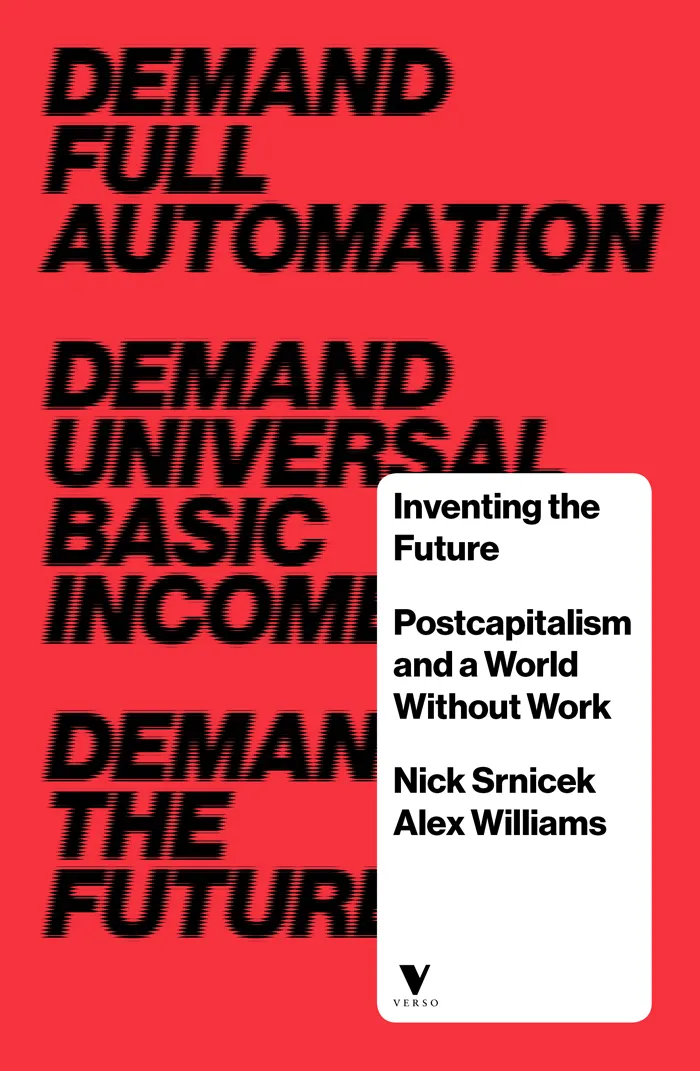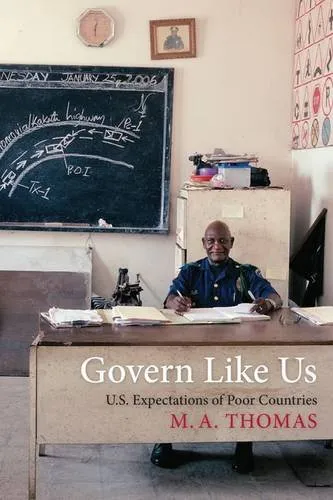Deepening Democracy: Institutional Innovations in Empowered Participatory Governance (Real Utopias Project)
3.9
Reviews from our users

You Can Ask your questions from this book's AI after Login
Each download or ask from book AI costs 2 points. To earn more free points, please visit the Points Guide Page and complete some valuable actions.Related Refrences:
Persian Summary
Introduction
In a world where democracy often seems to falter under the weight of bureaucracy, disillusionment, and unfulfilled promises, Deepening Democracy: Institutional Innovations in Empowered Participatory Governance offers a beacon of hope. This thought-provoking book, edited by Archon Fung and Erik Olin Wright as a part of the Real Utopias Project, presents a compelling case for reimagining democratic participation through innovative governance models.
Detailed Summary of the Book
The central thesis of the book revolves around the idea that traditional forms of democratic governance are insufficient for addressing the complex problems faced by modern societies. Fung and Wright explore a series of case studies illustrating empowered participatory governance (EPG) as a transformative approach to decision-making. EPG aims to engage ordinary citizens directly in governance processes, moving beyond the mere act of voting to co-creating solutions alongside policymakers and experts.
Each chapter delves into specific examples of institutional innovations from around the globe. From participatory budgeting in Porto Alegre, Brazil, to the deliberative councils in local governments across India, these case studies demonstrate how EPG can lead to more equitable and effective outcomes. The book not only analyzes these experiments in participatory governance but also outlines the conditions necessary for their success, such as institutional support, civic engagement, and transparency.
Key Takeaways
- Empowerment through Participation: The book emphasizes that meaningful public participation can empower citizens and lead to more legitimate and trusted governance outcomes.
- Adaptability and Context: Successful implementation of EPG varies based on local contexts; there is no one-size-fits-all model.
- Collaboration over Opposition: EPG models encourage collaboration between citizens and officials, promoting consensus and reducing conflict.
- Increased Accountability: Participatory governance fosters accountability through direct citizen involvement in decision-making processes.
Famous Quotes from the Book
"Democracy is not just about elections, but about ensuring that the voices of the people shape the decisions that affect their lives."
"When institutions open up space for direct public involvement, they lay the groundwork for a deeper, more responsive democracy."
Why This Book Matters
Deepening Democracy is crucial not just for scholars and students of political science, but also for policymakers, activists, and engaged citizens seeking to understand and implement more democratic forms of governance. In an era where political disillusionment is on the rise, this book provides practical and evidence-backed strategies to revitalize democratic practices. Its exploration of real-world applications makes the theoretical concept of participatory governance accessible and actionable.
Furthermore, the book stands out for its interdisciplinary approach, drawing insights from sociology, political theory, and public administration. It addresses empirical challenges and normative questions, offering a roadmap for turning democratic ideals into living realities. By providing a platform for voices that are typically marginalized in traditional governance structures, EPG holds the potential to bridge societal divides and build more cohesive communities.
Free Direct Download
You Can Download this book after Login
Accessing books through legal platforms and public libraries not only supports the rights of authors and publishers but also contributes to the sustainability of reading culture. Before downloading, please take a moment to consider these options.
Find this book on other platforms:
WorldCat helps you find books in libraries worldwide.
See ratings, reviews, and discussions on Goodreads.
Find and buy rare or used books on AbeBooks.
1566
بازدید3.9
امتیاز0
نظر98%
رضایتReviews:
3.9
Based on 0 users review
Questions & Answers
Ask questions about this book or help others by answering
No questions yet. Be the first to ask!






